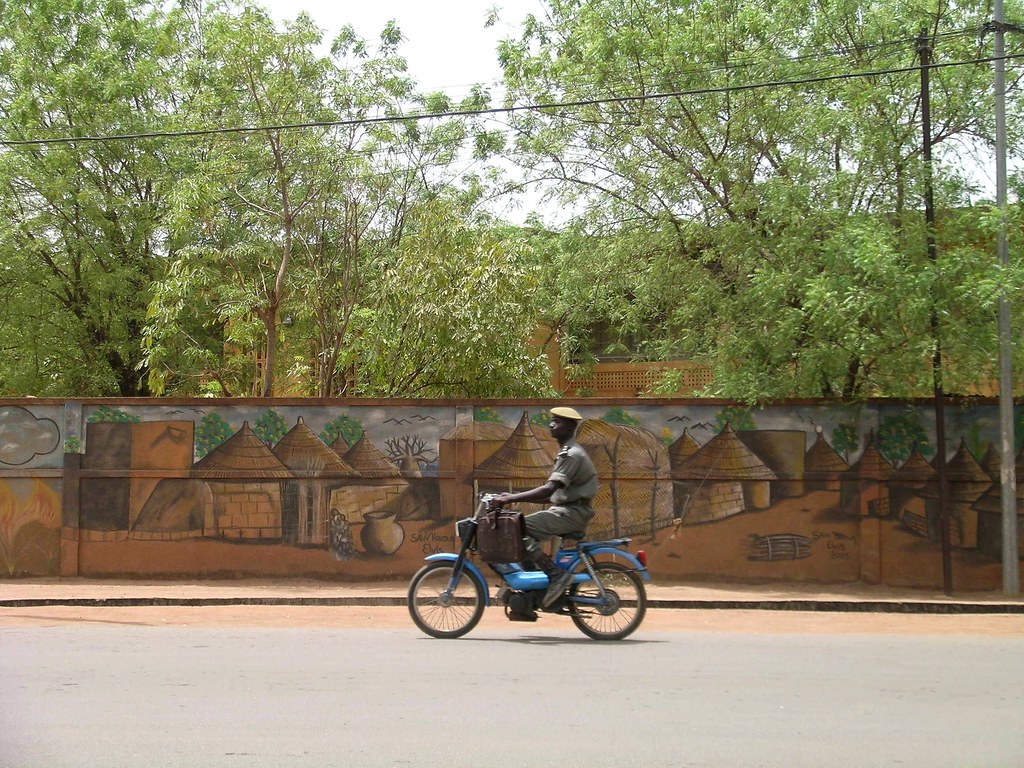Self preservation in Ouagadougou
Why the coup leader, General Gilbert Diendéré, is derailing the political transition in Burkina Faso.

Soldier in Burkina Faso. Image credit C. Hugues via Flickr CC.
The remnants of burnt-out tires litter the streets of Ouagadougou as ordinary Burkinabe resist the military coup threatening to completely disrupt the transition to democracy. On Wednesday, September 16th, the presidential guard—known by the French acronym RSP—seized the President and Prime Minister announcing the dissolution of the transitional government and proclaimed their commander General Gilbert Diendéré as acting head of state. With legislative and presidential elections scheduled to be held in less than four weeks, everyone is asking one question, why? Why would Diendéré and the RSP seek to completely derail an up till now peaceful process toward the country’s most democratic elections?
The official response: the organization of elections was deeply flawed. In April the transitional government reformed the electoral code to exclude politicians who supported a modification to presidential term limits in 2014 from running in the 2015 elections—popular uprisings ousted former president Blaise Compaoré from power when he attempted to modify the terms in October 2014. Despite the politically contentious nature of this electoral reform and a ruling from ECOWAS (the regional group of West African states) courts against the reform, the country’s Constitutional Court upheld it and several potential candidates were barred from contesting the elections. However, this doesn’t explain why the RSP decided to take this political debate as a pretext for a military coup, or why the RSP had threatened similar action previously during the political transition.
A better explanation exists for the actions of the RSP and for Diendéré, self-preservation. Created in 1996 by former president Compaoré, the elite unit of 1,200 to 1,300 men carried out the personal protection of Compaoré, as well as the tasks of a secret police force to ‘maintain order.’ After Compaoré’s fall, one of the major questions faced by the transition was what to do with the RSP. The transitional administration side-stepped this thorny problem for the better part of a year, until two days before the military coup. On the Monday before the coup, the Commission for National Reconciliation and Reform released a report to the Prime Minister in which the RSP received stark criticism for its lack of accountability to the military. The report describes the RSP as an army within the army; its final recommendation: dissolution.
Then there’s Diendéré. Compaoré’s right-hand man since before he came power, Diedéré is suspected of being in charge of the soldiers responsible for Thomas Sankara’s assassination. The on-going investigation into Sankara’s death was, by the way, put on hold because of the current coup. His list of dirty deeds doesn’t stop there. Diendéré is suspected of being involved in the murder of investigative journalist Norbert Zongo and his colleagues. He is also suspected of profiting from the less than spotless involvement of Burkina Faso in the crises of Liberia, Sierra Leone, and Côte d’Ivoire through the trafficking of illicit goods and potentially arms. More recently, Diendéré is credited with resolving the military mutinies of 2011, although the more suspicious amongst Burkinabè wonder if he might not have also instigated or exacerbated them first.
Until now, Diendéré’s involvement and knowledge of nefarious back dealings throughout the sub-region have kept him safe. But when confronted with the end of Compaoré’s rule, the potential termination of the RSP, the exclusion of his political allies, and a Burkinabè people thirst for justice, it appears he has real cause for concern. What better way to insure his own future, even if it is exile, than by taking the country hostage?
For now, the strategy seems to have paid off. Senegalese president and current president of ECOWAS, Macky Sall, and the President of Benin, Boni Yayi, arrived last Friday (September 18th) to begin negotiations between the different groups in the political crisis. The mediation process restored a tenuous calm to the capital of Burkina Faso. It also guaranteed that Diendéré and the RSP will have a voice in a transition process from which they were previously excluded. Only time will tell if the military coup gambit will pay off completely and help Diendéré and the RSP escape their alleged past crimes.



















